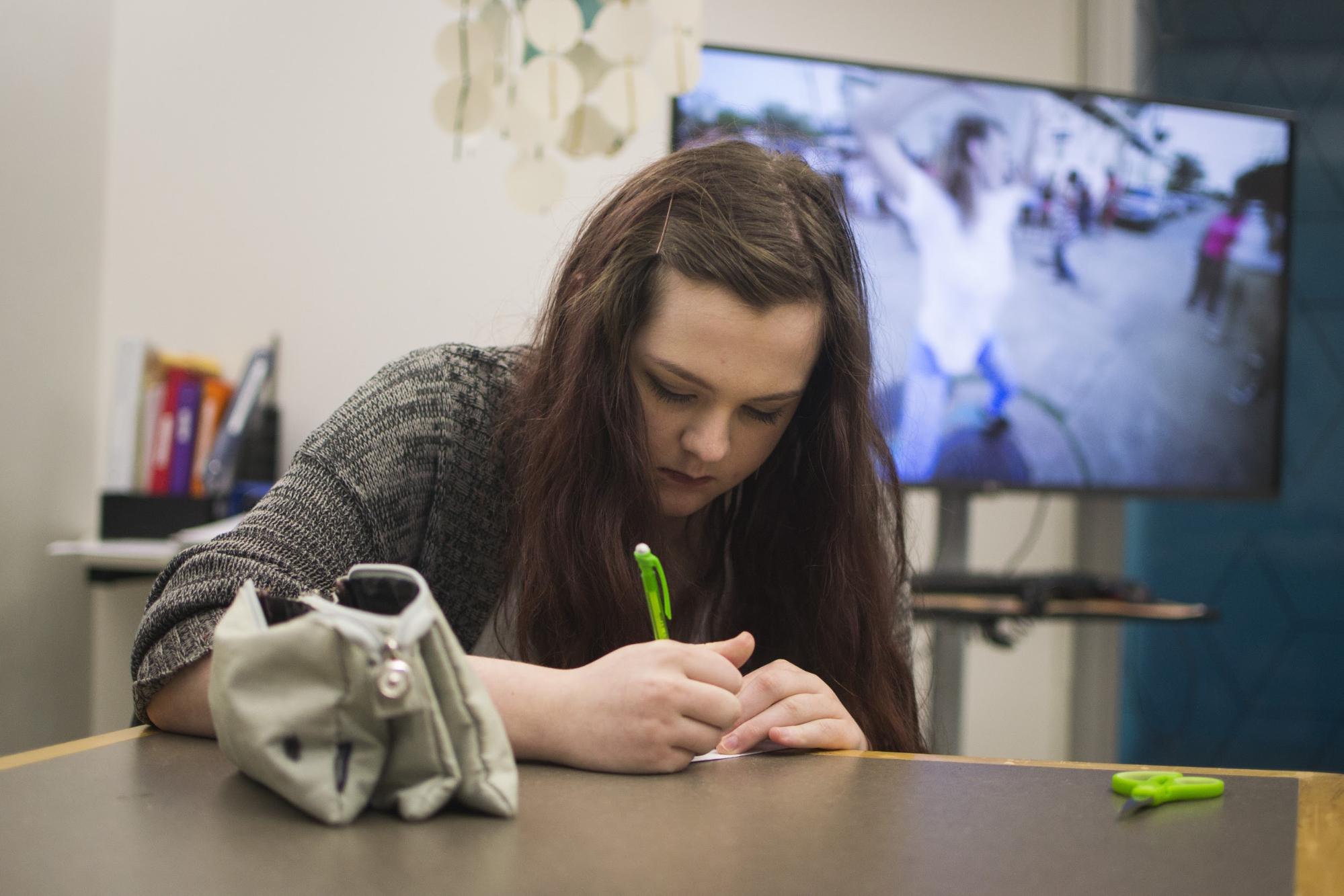
Since Sept. 25, the Collins Memorial Library has been hosting a series of zine workshops to promote the growing selection in the Archives and Special Collections (A&SC) and to encourage student creativity and expression.
Zines, short for magazines or fanzines, are self-created projects that typically focus on one specific topic per publication. Humanities Librarian Katy Curtis acts as both the unofficial zine curator and leading force in debuting this series.
Starting out with an initial donation of roughly 100 pieces from the American Library Association in 2016, the library has since added around 150 zines to their collection.
Curtis now outsources zines from individual creators, zine “distros” that buy and resell other creators’ zines and students themselves.
While the library’s collection already features student publications, Curtis is actively seeking out more and hopes that the workshops will prove effective in attracting students to create and contribute.
“One of the missions of the Archives and Special Collections is to document and preserve the history of the University,” Curtis said. “I think having a portion of our collection be devoted to student zines shows a different aspect of student life on campus.”
Although students have the option to donate their own zines, they are also welcome to attend the workshops simply as a means of relaxing and artistically expressing themselves outside of class.
“I don’t want it to be super formal, I just want it to be … an opportunity for people to come in and have fun and learn something new and be creative,” Curtis said. “I really want people to come away from this with the idea that you don’t have to have special skills to make a zine, there aren’t any rules to make a zine. … There are very, very minimal barriers to participation.”
Zines, as a means of communication, are very free-form. They range from being more textual to more artistic, and cover a wide range of subjects, from mini comics to social justice advocacies. The outcome of each print is entirely up to the creator and subsequently has a unique way of revealing that person’s identity and personality.
“There’s not a bunch of editing that they go through, so they’re really unmediated. When you’re reading them, you’re hearing directly from the person that created them,” Curtis said.
The library wants to honor this individualism and provide students with an outlet for sharing it. As a result, each creative workshop provides instruction for how to physically create zines and suggestions for design, but leaves the topic choice up to each participant.
Additionally, this series also serves to fully integrate students into the library and allow them to explore and become familiar with all of the available resources. Informational sessions are held in the A&SC while creative sessions are held in the Makerspace, an area that gives students access to tools and equipment to design and create art.
“We’re here to support your research and your academics … which is very important, but anything that we can provide that helps enrich the entire Puget Sound experience, I think, is a good thing,” Curtis said.
The first session on Sept. 25 featured a look into the zine collection in the A&SC and focused specifically on zines related to the Race and Pedagogy National Conference, as it took place that same week.
The second session on Oct. 2 gave an introduction to zine-making, and attendees were able to utilize the Makerspace to create their one-page zines.
The remaining four sessions of this series will take place from 5-6 p.m. on Oct. 23 and Nov. 6 in the A&SC, and Oct. 30 and Nov. 13 in the Makerspace. Depending on student feedback, this series may be one that occurs every year, and could exapand to include collaboration with local zine creators as well. As for now, more information about the current zine collection can be found on the library’s website.
